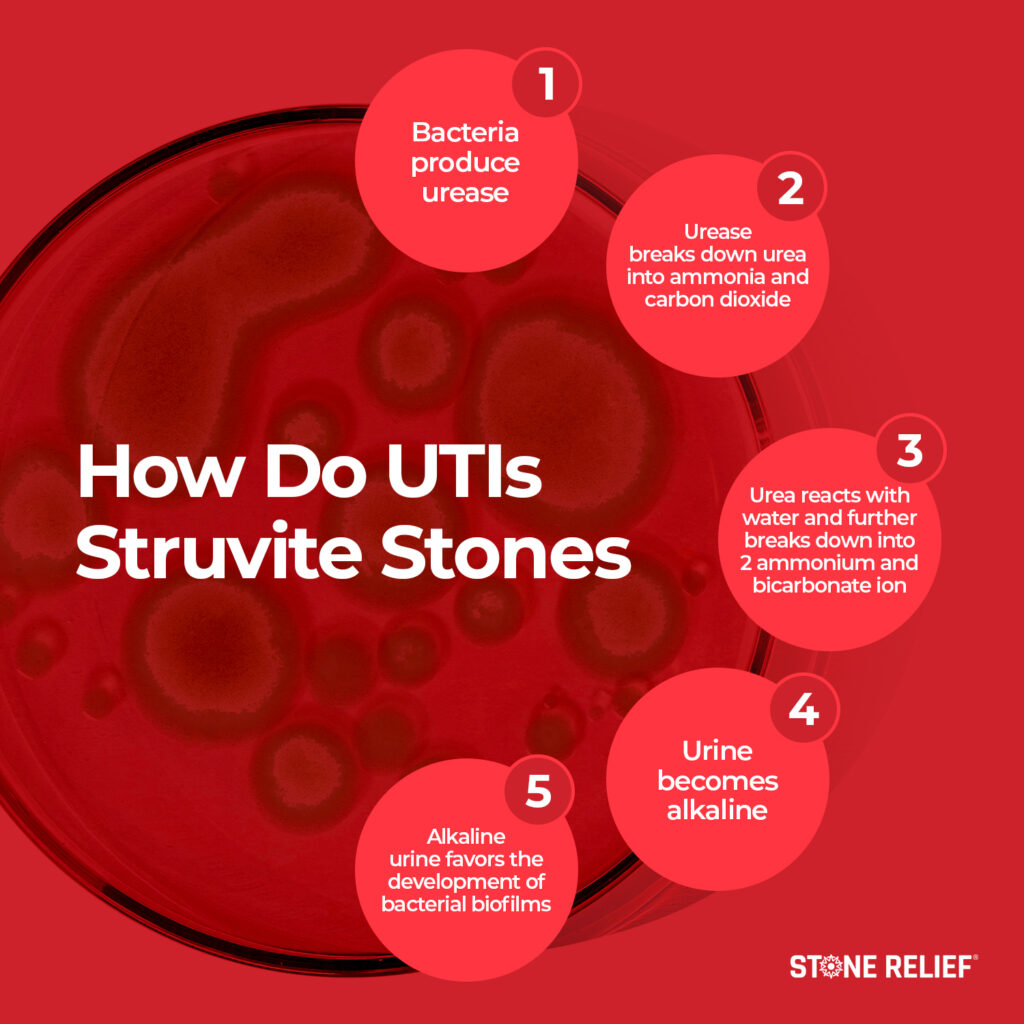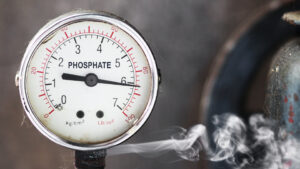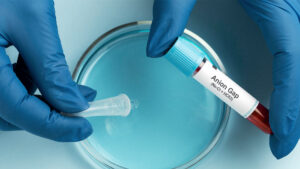Published: April 28, 2024 | 9 mins read
Which comes first – UTI or Kidney Stones ?
Urinary tract infections (UTIs) and kidney stones are really connected to each other. It could even be viewed as a chicken-and-egg relationship. To answer the question many kidney stone-formers are curious about, “Which comes first – UTIs or kidney stones?“ It depends.
UTIs can cause kidney stones, and kidney stones can cause UTIs. Before we get deeper into the weeds, let’s define UTIs and what causes them.
What are UTIs?
Urinary tract infections (UTIs) are bacterial infections that can affect any part of the urinary system, including the kidneys, ureters, bladder, and urethra. They are commonly caused by bacteria entering the urinary tract and multiplying, leading to inflammation and infection. Now that we’ve understood UTIs, it’s time to explore their link to kidney stones.
How Do UTIs Cause Kidney Stones?
The chicken-and-egg relationship between UTIs and kidney stones has been established since Hippocrates’ time. These bacterial infections can influence the following stone types:
Struvite Stones
Struvite stones are under the calcium phosphate stone family. They make up around 5% to 15% of kidney stone cases in the US. These stones are a mixture of three positive ions, calcium, magnesium, and ammonium, and one negative ion, phosphate. They are, therefore, also known as triple phosphate stones. However, pure struvite actually contains no calcium.
These stones usually form in the kidney or bladder of patients with catheters or who are suffering from urinary stasis (urine is not draining completely).
How do UTIs cause struvite stones?
Bacteria produce an enzyme called urease in urine. Urease splits urea (a protein byproduct) in urine into ammonia and carbon dioxide—like cutting a piece of paper into two parts. As urea reacts with water, it is further broken down into two ammonium and one bicarbonate ion for each urea molecule. Both ammonium and bicarbonate are alkaline ions. This results in very alkaline urine (8.5 to 9.0 pH) that is not achievable under normal conditions.
Highly alkaline urine can harm the protective layer of glycosaminoglycans (long chains of sugar molecules) that shield the urinary tract from bacteria. This damage leads to developing bacterial biofilms (a bacterial community enclosed in a slime-like layer), where struvite and calcium phosphate (apatite) crystals start forming.
When urine is highly alkaline, more undissolved particles of magnesium ammonium phosphate and calcium phosphate (apatite) will be floating around. In short, alkaline urine (over 7.0 pH) is a favorable place for struvite stones and calcium phosphate stones.
You might think, “Well, struvite stones are not much of a big deal, not even a big chunk of kidney stone cases.” That’s true. However, did you know that UTIs can also affect calcium oxalate stones (CaOx), which account for 80% of all kidney stone cases worldwide?
In the next section, we’ll explore how UTIs affect CaOx stones in a way your doctor probably never explained.

Calcium Oxalate Stones
The truth is that UTIs are not directly linked to calcium oxalate stones. However, bacteria stick more commonly on specific types of crystals and promote their growth. For instance, bacteria adhere to calcium oxalate monohydrate crystals (first subtype) compared to calcium oxalate dihydrate (second subtype).
UTIs can also reduce citrate levels in the urine. Citrate binds with calcium to prevent oxalates from sticking to it to form stones. So, less citrate means increased stone risk when in the presence of free-unbound oxalate ions (ions that have the ability to bind with calcium because they’re not connected to any other ion) that would accumulate in our bodies from the foods we eat . Some studies found that the patients with UTIs have two-fold lower urine citrate levels than those without.
Understanding how UTIs cause kidney stones is yet the first side of the coin. The next question is, how does a kidney stone cause UTIs?
If you are curious, read on!
How Do Kidney Stones Cause UTIs?
The primary reason kidney stones can lead to UTIs is urine obstruction. Large stones or stones stuck anywhere in the urinary tract can obstruct urine flow, which creates stagnant urine. This serves as a breeding ground for bacteria. When bacteria multiply, it may lead to UTIs. Speaking of bacteria, let’s name the most common ones most likely to cause kidney stones.
Common Bacteria that Cause Kidney Stones
The best way to win a battle is to know certainly who your enemy is. In the same way, if you want to stop forming kidney stones due to bacterial infection, you need to familiarize yourself with the common bacteria that cause stone formation.
Take a look at this list:
- Proteus—This bacteria family is abundant in soil, water, and stool. Around 90% of Proteus infections are due to P. mirabilis (a species under the Proteus family). P. mirabilis is commonly found in individuals with long-term urinary catheters or stents. It can form biofilms on catheters and within the urinary tract. Biofilms protect the bacteria, making them 10 to 1,000 times more resistant to antibiotics. Imagine that! This is another reason to say no to stents when your doctor suggests one.
- Klebsiella—This bacterium is normally found in the human intestines. Interestingly, it does not cause disease inside the intestine. It is also found in human stool. A person gets infected with this bacterium through person-to-person contact. Nevertheless, according to the CDC, healthy people usually don’t get Klebsiella infections. So, the focus is strengthening immunity, which we will discuss later.
- Staphylococcus – This is usually found on our skin, where it doesn’t do any harm. However, it may cause a UTI when catheters or stents are present. It may also cause infection for people with compromised immune systems, as in the case of people with HIV or AIDS, diabetes, undergoing chemotherapy, etc. Again, boosting your immunity is the key.
- Pseudomonas—These bacteria are commonly found in the environment. Be careful when receiving hospital treatments! People most at risk to infection are hospital patients, such as those on breathing machines (ventilators), with catheters/stents, or with wounds from surgery.
- Providentia—Providentia is a normal intestinal bacterium commonly found in stool. When the bacteria from the stool goes to the urethra, it may cause a UTI. It may also cause infection in patients with long-term catheter/stent use or people with compromised immunity.
- Serratia—This bacterium is often found everywhere, even in plants used as food. It often causes UTIs through direct contact with infected people, contaminated hospital equipment, and sharing contaminated clothes and other personal things.
- Morganella—This type is also commonly found in the human intestine. It can cause a UTI when bacteria from the stool ascend to the urinary tract or through catheters/stents.
Okay, that was a long walk-through of bacteria names.
So, who is prone to getting UTIs that cause kidney stones? To confirm your suspicion, let’s hop on to the next chapter.
Who is More Prone to UTIs that Cause Kidney Stones?
You most likely saw the pattern from the information above. People who have had indwelling catheters/stents for quite some time are prone to having bacterial stones. So, the next time your doctor recommends a stent, make sure to read our Stent Survival Guide first to see if you really need it. Your doctor will probably not take the time to explain all these things to you, so we created a comprehensive guide.
Also, people with compromised immunity are more prone to UTIs. That’s because our bodies have a natural way of protecting ourselves against infections. The healthier you are, the less likely you’ll be infected. Just imagine a house fully secured with steel bars and bolts. If a burglar tries to come in, they’ll likely struggle to break in. That’s the same logic that applies to our bodies. We need a more robust security system.
Some of you may argue, “Well, women are more prone to UTIs than men, so men don’t need this advice.”
It’s true that women are more prone to UTIs because they have a shorter entrance to their urinary tract than men. In fact, the ratio of males to females developing struvite stones is 1:3. Nevertheless, it’s still best for men to take the precaution, too.
That said, how do you shield yourself?
The next section will explain how to effectively prevent UTIs.
Strategies to Prevent UTIs Causing Kidney Stones
There are several ways to prevent UTIs that can cause kidney stones. Here are the top three:
1. Make sure to practice proper hygiene
Sharing clothes and other personal things or engaging in sexual activities can increase your risk of UTIs causing kidney stones. So, practice proper hygiene at all times.
2. Avoid stents unless REALLY necessary
Stents or catheters can be a breeding ground for bacteria that can cause UTIs. Stents are only necessary when urine needs immediate drainage. If that isn’t the case, stenting is not needed, and it will only cause you more pain or, worse, increase your risk for UTIs.
Again, our Stent Survival Guide will give you more details about stents.
3. Boost your immunity
Going back to our home example, the more secure your home is, the less likely uninvited guests will break in. In the same way, we need to strengthen our bodies to fight infections. How do you do that?
If you are thinking about synthetic vitamins, that’s GARBAGE. Proper nutrition is achieved with REAL foods. However, we know that navigating dietary changes can be difficult. That’s why we invite you to join our Coaching Program. In this program, we will help you start eating the species-appropriate diet our ancestors ate to thrive.
A species-appropriate diet means that you will move away from toxic plant foods and enjoy animal-based foods like meat and dairy, with the least toxic seasonal ripe fruits. Eating this way will help you fix your metabolic health, neutralize urine pH, cure most chronic diseases, and reverse immune dysfunction.
It’s like having the whole army protecting your home against the bad guys. That’s a sure win!
So, check out our Coaching Program here.
REFERENCES:




Eggs,bacon,wheaties,tuna salad sandwich w/mayo and onions,ground beef,pork,chicken,,hot dogs,battered frozen fish,potatoes,egg noodles,broccoli,cauliflower,peas,corn,lettuce,water,green tea. Nothing fancy or spicy.
I only drink reverse osmosis water not tap.
UTIs can be super fickle things. Something as benign as eating wheaties, or bread/noodles, and some of the veggies you’re eating may setting you up for recurrent UTIs.
It all boils down to managing urine pH. If you neutralize your urine pH through diet, you take away the environment required for these bacteria to reproduce, which is alkaline urine. No alkaline urine, not UTIs, and no more calcium phosphate stones.
Does this make sense, @noreen?
I have not been diagnosed with calcium phosphate stones. My stones are 100% uric acid.
Hey @noreen. Same advice applies. Making those changes to eliminate inappropriate foods while help solve any underlying metabolic dysfunction as well, which is what is causing your uric acid kidney stones along with acidic urine.
Either way, it’s all about neutralizing your urine pH through diet.
Have you tested your urine pH recently?
5.5. If You think my diet is wrong then please refer me to an article that lists the foods I should be eating. Thank you.
Hey @noreen , with a pH at 5.5, this is pretty acidic and signals that something is not quite right metabolically. And your Klebsiella UTI’s make sense. This bacteria thrives in acidic urine environments.
In terms of changes to your diet, this is way more involved than just sending you something to read. But, on the surface, eliminate all processed foods (wheaties, breads, pasta, frozen foods, etc). This will help move the needle.
We’d encourage you to buy urine pH test strips and test every week to watch your progress.
If you can get into the 7 range for pH, the UTIs will stop and so will the uric acid kidney stones.
For more tailored guidance, we’d encourage that you book a call with Joey. He will devise a plan with you, help monitor your goals, and help you clean all this up.
Let us know if you have questions 🙂 We’re here to help!
My culture came back p mirabilis again. Can you suggest what ph is best for this and a diet?
Hi @noreen, what does your diet look like? Can you share some of the foods or meals that you eat most frequently?
I suffer from low urine ph=uric acid kidney stones. I have a chronic UTI (P. Mirabilis and Klebsiella. Sometimes a single bacteria. Sometimes at the same time) I take Keflex 7-10 day courses. About 5 days after the last dose the UTI comes back. This has been going on for over 2 years. I am going tomorrow for another culture I know I have another UTI. I am 75 years old and not living the quality of life I should as these infections keep me weak. Very frustrated and depressed. Any advice?